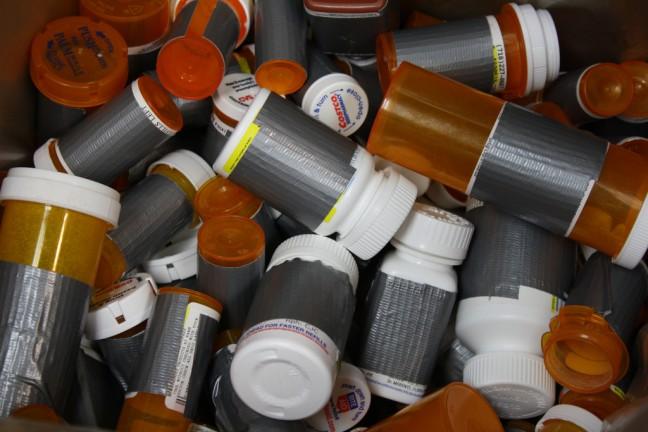Despite suspension of the program late last year, the Wisconsin Department of Justice is bring back the drug take back program to safely dispose of prescription drugs, Attorney General Brad Schimel announced Thursday.
The Secure and Responsible Drug Disposal Act was signed in 2010 as a way to help control the non-medical use of prescription drugs by conducting take back events. These events collect prescription drugs and dispose of them safely.
In September 2014, the Drug Enforcement Assessment announced they would not be continuing the program, because of expanded laws. Rules for enforcing the Controlled Substances Act were revised, allowing for disposal options in drug stores, hospitals and clinics for more convenient disposal.
Schimel said there are two pieces to the issue: being able to dispose of prescription drugs safely and giving people a chance to get rid of the drugs every day. Local law enforcement agencies have 24/7 drop off boxes for people to get rid of their prescription drugs, he said.
There will be two collections each year, when the DOJ collects all the prescription drugs from the drop-off boxes. This is the same number of collections as before, but Schimel said they may increase in the future.
Schimel said prescription drugs are a gateway drug, which can lead to harder drugs like heroin. He said many young people accidentally get addicted to prescription drugs after events like having their wisdom teeth out.
“Once kids get ahold of these drugs, they can take ahold of their lives,” Schimel said.
The prescription drugs need to be incinerated to be disposed of safely, Dorothy Chaney, president of Wisconsin Community Health Alliance said. However, she said Wisconsin does not have proper incineration facilities.
To dispose of prescription drugs, Schimel said they are boxed up, loaded on pallets and shrink wrapped, and under tight security. The drugs are then taken to Indiana, where they have an incinerator to safely destroy the drugs.
When the DEA stopped the program at the federal level, law enforcement were still receiving prescription drugs with no way to dispose of them, Schimel said.
Chaney said it was great that Schimel is committed to the issue and said it was an example of him “walking the walk.”
“It is great from a community perspective,” Chaney said. “These take back events are more broadly publicized, so they collect more prescription drugs because they raise awareness.”
The program will be funded through the DOJ. Schimel said he has discretionary funds at the DOJ, where he can set his priorities on where to spend. He is not sure exactly what the costs will be, but said it would be significantly cheaper than each law enforcement office disposing of the drugs individually. Schimel said he does not expect to have issues funding the program.
While Schimel said this program is great to help get rid of prescription drugs, he said there needs to be more understanding about how dangerous these drugs are. He said he has been having conversations with representatives from the medical society, the hospital association and the dental association about better explaining how dangerous these drugs can be.
“Whenever they are prescribing these drugs, patients should be told that they can be addictive and they can be deadly and they should be treated with care,” Schimel said.
The DOJ will begin its collections again in May.


